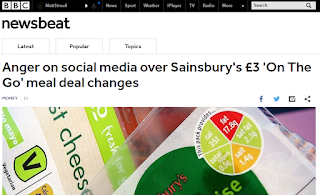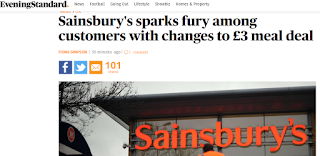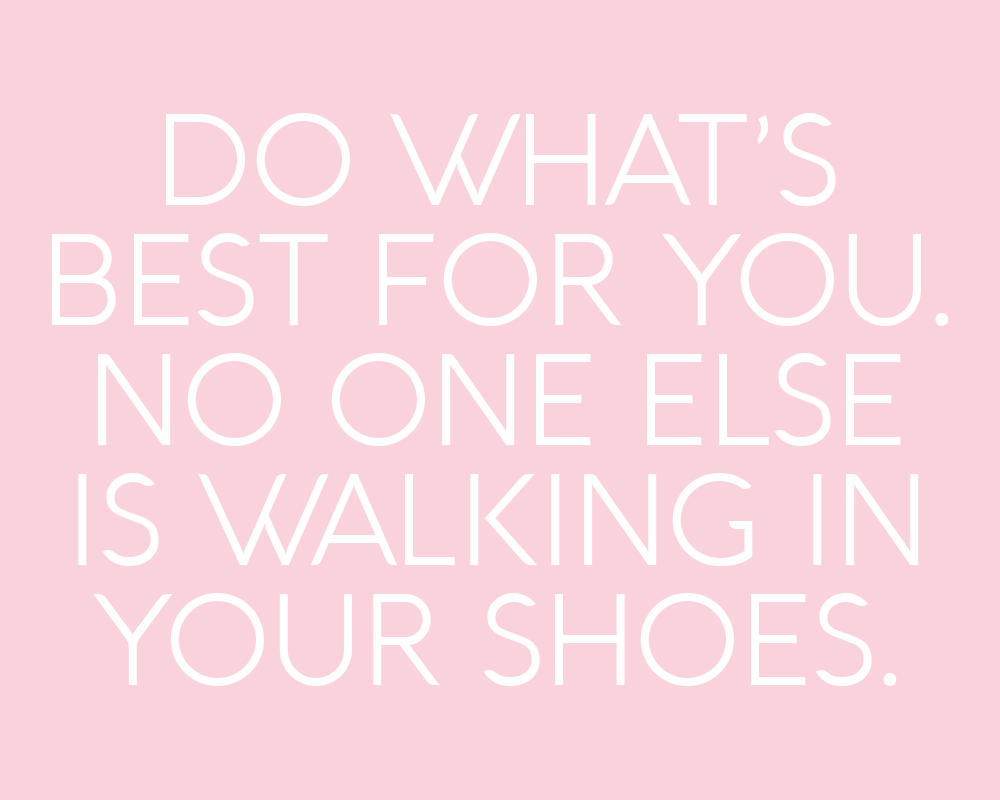This week my blog features two posts. In the first post, I followed on from last week by looking into the suicide crisis and importantly where is the anger and scandal around it. In this post, my close friend Claire Freeman looks at mental health and suicide from another perspective; a friend or relative watching on and the feeling of being somewhat powerless.

#WSPD - Post Two
As we approach World Suicide Prevention Day on 10th September it seems time to reflect on everybody who is affected by mental health, including the friends and families supporting their loved ones battling with their mental health illnesses.
It is a sad fact that there just isn’t enough support and care available for mental health and yet surely this is equally important as our physical health? The NHS and supporting charities such as MIND do fantastic work with the financial support and resources that they get but sadly it’s not enough and suicide rates are still too high with one death every 40 seconds. This is leading to pressures on emergency services such as when Police cells are being used as a ‘safe place’ due to a lack of NHS beds.

Being a family member or friend to someone with a mental illness is a difficult, stressful and frustrating situation. Firstly, it will always be a challenge to understand how the person is feeling and it’s a big pressure to try and help. It isn’t always easy to know what the best method of support is and all you want to do is improve the situation for your loved one even when sometimes they won’t or can’t seem to accept that help. They feel like they are a burden and want to shut everyone out to protect them but those on the outside just want to help to make it better.
The next hurdle is actually getting your loved one the help they need and deserve. With rates of suicide as high as they are, prevention rather than just trying to deal with emergencies is the key. Unfortunately, with what seems like a stretched health care system, this help is harder to come by. Counselling, GP appointments, crisis hotlines, hospital beds and medications are all viable and good resources however for most are not available when required. It is either refused completely or a waiting list is too long that it can come too late.
This is proved by an incident that occurred on this week when I was alerted by a woman outside my home screaming and crying. I instantly ran outside to see if I could help and found her on the phone to the emergency services after her brother had tried to take his life. She was distraught. I have never seen anyone so scared, anxious and inconsolable. You could physically see her heart breaking as she tried to get help from the emergency services. As she became angrier, she began venting about how the family had been asking for help and support and had continually been let down. When asking for him to be helped it was never an ‘emergency’. That one word made me feel sick.

My family and I have personal experience in trying to get help for a loved one suffering with a mental health condition. My Grandad battled Manic Depression, now referred to as Bipolar Disorder, for the majority of his adult life. As a child, I wouldn’t have been aware but as I grew up and became more able to understand, the true nature of living with a mental illness became apparent. I know from speaking to family members that spanning over decades they struggled to get the help that was needed to improve Grandad’s quality of life. His condition was always going to be there but there were periods of time when it became more manageable due to medication etc. However, the threat of suicide had always played a part. This pattern of peaks and troughs with his illness continued throughout his life and when it was bad, it was really bad. I don’t think anyone can comprehend just how lonely and dark the world must seem to feel when the only answer is to leave it. Watching someone you love and care for actually suffer in that manner is heartbreaking. The mixture of emotions and feelings for those who have to watch on is incredible. You are upset that your loved one is hurting, you are angry and frustrated that you can’t help, you are confused as you try to even begin to understand how and why they feel that way. You can see all the positives in their lives. They have a good job, a home, a network of friends and they have you. You adore them so why is that not enough? This is perhaps the hardest part. Being able to accept that whilst they do have all those things they sadly can’t see or feel that when their illness is at its worst. You may love them to the ends of the earth but they can’t understand that because usually, they don’t see why anyone would.

In some ways our family was lucky. Although it took far too long and lots of battling we did get help along the way and the care Grandad did receive was on the whole great. He spent time in hospital on the psychiatric ward with counselling and alternative treatments. He was regularly given medication to try and manage his illness. Although I say we are lucky, is this not what we should expect? If someone had a physical illness such as Diabetes they would receive that care no questions asked. So why when it’s a mental health condition does this seem to be a struggle to get and if received it is felt to be a big win?
As a family, in my opinion, we were let down too often in the end. Grandad was the worse I had ever seen him which was extremely hard to swallow when he had previously been doing really well. So what had changed? His prescription. For some unknown reason when he saw a GP that Doctor made a decision that would affect us all in ways he could never have imagined. Grandad had been better than he had been for a long time. His prescription had been working great so what did this GP do? Changed it. We will never understand why that was deemed appropriate. Surely if something is working for a patient, and they are not harmed by what and the amount of the drugs they are given, you would leave well enough alone. As soon as this was done we were back to square one and the illness became awful for Grandad and for us around him. It was the worst time for all involved as every day was torturous for him and we were helpless to stop it. We started pushing for help again but this time, we were faced with even more struggle to get it. He needed to be in a safe place like a hospital where he could get the right support but instead, he was at home. He was a risk to himself and my Nan, an elderly woman, trying to cope. She lived every day wondering if he would be there still as he made many threats and attempts to his life. Upon calling a crisis line she was told ‘it isn’t an emergency’ because he was only about to hurt himself but he hadn’t yet. When does it become an emergency then? Once they have actually hurt themselves and it is too late?
 |
| evanlavine/flickr |
Sadly for our family that was the case and my Grandad did commit suicide. At that point, it was treated as an emergency and suddenly everyone appears to help; Police, NHS, Crisis lines. But it’s all too late. I remember upon hearing the news the expected feeling of upset and grief came over me. However, what I vividly remember was also a sense of anger. Anger at the situation, anger that we couldn’t do more to of helped, anger that when asking for help he didn’t always get it and anger that he had done this and left us to deal with the consequences. Of course the anger towards him soon faded when I considered how awful it must have been for him. People say suicide is selfish because of the impact it has on others but I say is it? When someone makes that decision they are in the worse place they could be, a place most of us will hopefully never have to experience, and feel this is the best for everyone. Whether right or wrong in their logic I think it’s far from selfish.
This is why when I met that poor young lady on Tuesday my heart went to her. Nearly 10 years after my family battled to get the right preventative action I could see another family experiencing the exact same. Actually, now it is probably worse. We have more people than ever needing the support and care that could prevent families all over the UK from going through what mine did. As I watched on and tried to help this complete stranger, I felt I knew her. I really could put myself in her shoes. Hopefully for that family this will be the ‘emergency’ that will get the young man the help he needs.
 |
| flickr / creatinginthedark |
Overall the message to take with us all is that at some point it is likely that mental illnesses or suicide will touch our lives in some way. For those who suffer with an illness personally you are not alone even if it may feel that way. Use what energy you have to fight and ask for the help you deserve. Try and let your friends and families in and let them take some of the load. You are not a burden. You are their world. And to those who have a loved one with a mental illness, stay strong and be there even when that person pushes you away. Help them to get counselling or encourage them to go to charity websites such as MIND to get advice on self-help. Try and get that person support early on and don’t feel bad for nagging the health services, they are stretched but they are fantastic at what they do.
Prevention by helping those in need far earlier in their illness could drastically reduce the number of families to experience what mine did. Action needs to be taken by the government to help mental health services with more doctors, counsellors and beds in wards where needed but also to teach self-help in schools etc. and really educate our next generations on how to look after themselves and each other. If we can ensure mental health stops being a taboo, then maybe we have a chance of fighting it more effectively.
Resources for employers and schools can be found at www.time-to-change.org.uk
In the UK, the Samaritans can be contacted on 116 123.
In the US, the National Suicide Prevention Hotline is 1-800-273-8255.
In Australia, the crisis support service Lifeline is on 13 11 14. Hotlines in other countries can be found here

















